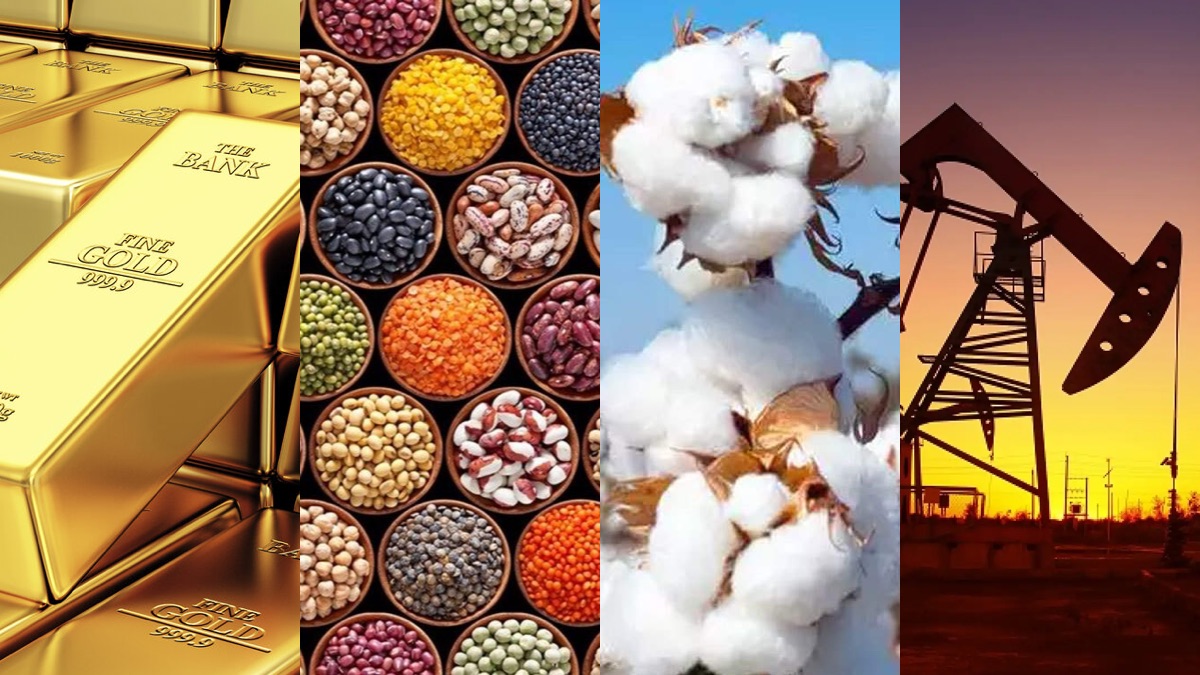Investment Manager
- Available 24/7
- ***
- Invest with us
Commodities Trading
What Is a Commodity Market?
A commodity market is a marketplace for buying, selling, and trading raw materials or primary products. There are currently about 50 major commodity markets worldwide that facilitate trade in approximately 100 primary commodities.Commodities are often split into two broad categories: hard and soft commodities. Hard commodities include natural resources that must be mined or extracted—such as gold, rubber, and oil, whereas soft commodities are agricultural products or livestock—such as corn, wheat, coffee, sugar, soybeans, and pork.
History of Commodity Markets
 Trading commodities goes back to the dawn of human civilization as tribal clans and newly established kingdoms would barter and trade with one another for food, supplies, and other items. Trading commodities indeed predates that of stocks and bonds by many centuries. The rise of empires such as ancient Greece and Rome can be directly linked to their ability to create complex trading systems and facilitate the exchange of commodities across vast swaths via routes like the famous Silk Road that linked Europe to the Far East.
Trading commodities goes back to the dawn of human civilization as tribal clans and newly established kingdoms would barter and trade with one another for food, supplies, and other items. Trading commodities indeed predates that of stocks and bonds by many centuries. The rise of empires such as ancient Greece and Rome can be directly linked to their ability to create complex trading systems and facilitate the exchange of commodities across vast swaths via routes like the famous Silk Road that linked Europe to the Far East.
Today, commodities are still exchanged throughout the world and on a massive scale. Things have also become more sophisticated with the advent of exchanges and derivatives markets, Exchanges regulate and standardized commodity trading, allowing for liquid and efficient markets.
Perhaps the most influential modern commodities market is the Chicago Board of Trade (CBOT), established in 1848, where it originally traded only agricultural commodities such as wheat, corn, and soybeans in order to help farmers and commodity consumers manage risks by removing price uncertainty from agricultural products such as wheat and corn. Today, it lists options and futures contracts on a wide range of products including gold, silver, U.S. Treasury bonds, and energy products. The Chicago Mercantile Exchange (CME) Group merged with the Chicago Board of Trade (CBOT) in 2007, adding interest rates and equity index products to the group's existing product agricultural offerings.
Some commodities exchanges have merged or gone out of business in recent years. The majority of exchanges carry a few different commodities, although some specialize in a single group. In the U.S., the Chicago Mercantile Exchange (CME), the New York Mercantile Exchange (NYMEX), the Intercontinental Exchange (ICE) dominate the space. Each exchange offers a wide range of global benchmarks across major asset classes.
Types of Commodity Markets

Generally speaking, commodities trade either in spot markets or derivatives markets. Spot markets are also referred to as “physical markets” or “cash markets” where buyers and sellers exchange physical commodities for immediate delivery.
Derivatives markets involve forwards, futures, and options. Forwards and futures are derivatives contracts that use the spot market as the underlying asset. These are contracts that give the owner control of the underlying at some point in the future, for a price agreed upon today. Only when the contracts expire would physical delivery of the commodity or other asset take place, and often traders will roll over or close out their contracts in order to avoid making or taking delivery altogether. Forwards and futures are generically the same, except that forwards are customizable and trade over-the-counter (OTC), whereas futures are standardized and traded on exchanges.
Examples of Commodities Markets
The major exchanges in the U.S., which trade commodities, are domiciled in Chicago and New York with several exchanges in other locations within the country. The Chicago Board of Trade (CBOT) was established in Chicago in 1848. Commodities traded on the CBOT include corn, gold, silver, soybeans, wheat, oats, rice, and ethanol. The Chicago Mercantile Exchange (CME) trades commodities such as milk, butter, feeder cattle, cattle, pork bellies, lumber, and lean hogs.
The New York Board of Trade (NYBOT) commodities include coffee, cocoa, orange juice, sugar, and ethanol trading on its exchange. The New York Mercantile Exchange (NYMEX) trades commodities on its exchange such as oil, gold, silver, copper, aluminum, palladium, platinum, heating oil, propane, and electricity.
Key commodity markets in regional centers include the Kansas City Board of Trade (KCBT) and the Minneapolis Grain Exchange (MGE). These exchanges are primarily focused on agriculture commodities. The London Metal Exchange and Tokyo Commodity Exchange are prominent international commodity exchanges.

